Latest News
Laidlaw success for BSS student!
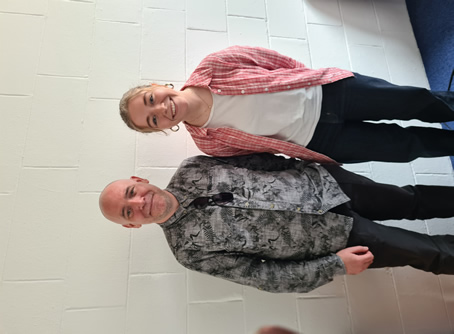
Congratulations to Bachelor in Social Studies Senior Fresh student Frøya Mostue-Thomas who has been awarded a Laidlaw Scholarship.
Awarded on the basis of a highly competitive process, the Laidlaw Scholars Leadership & Research Programme is an innovative scholarship which aims to develop a new generation of leaders who are skilled researchers. Laidlaw Scholars undertake an intensive and rewarding 18-month leadership development programme which includes opportunities for funded research and leadership experiences over two summers, skills workshops from expert facilitators, personal coaching, and a range of learning resources.
Frøya's application was supervised by Dr Joe Whelan. Joe will continue to work with Frøya over the course of her scholarship.
Read more about the Laidlaw programme here.
April 23, 2024
Congratulations to our New 2024 Trinity Fellows
 Congratulations to our colleagues Dr Catherine Conlon, Dr Edurne Garcia Iriarte and Dr Susan Flynn who on Trinity Monday, were announced as new Trinity Fellows. A massive well done on a great achievement for our School to gain three esteemed fellowship appointments.
Congratulations to our colleagues Dr Catherine Conlon, Dr Edurne Garcia Iriarte and Dr Susan Flynn who on Trinity Monday, were announced as new Trinity Fellows. A massive well done on a great achievement for our School to gain three esteemed fellowship appointments.
April 23, 2024
April Student Profile: Sowmia Lakkshme Sundaresan - SWSP Postgraduate Taught Scholarship Recipient and Graduate of the MSc in Applied Social Research
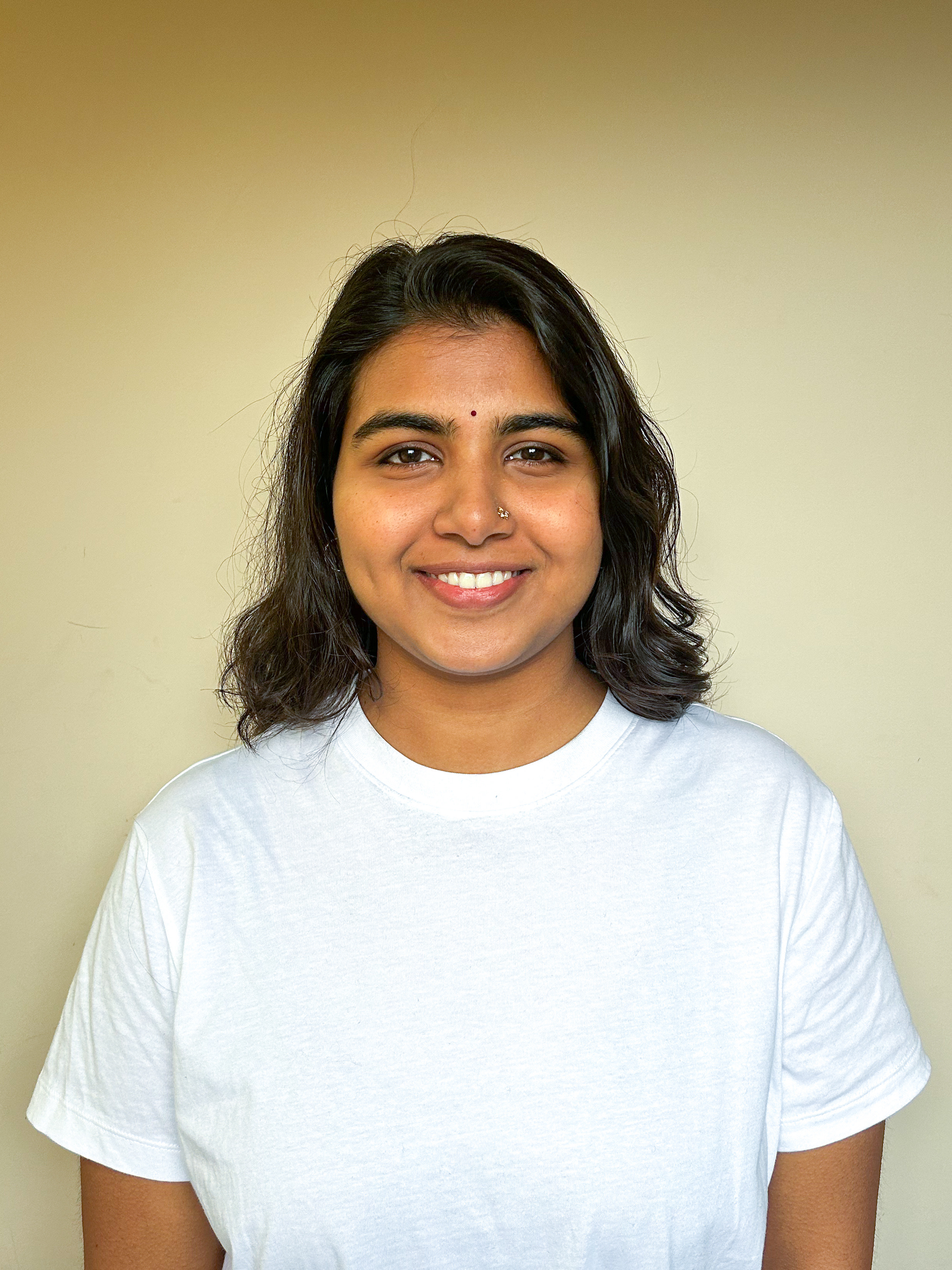
The School of Social Work and Social Policy was delighted to be able to catch up with one of our recent MSc in Applied Social Research graduates and Postgraduate Taught Scholarship Recepient Sowmia Lakkshme Sundaresan to discuss her experience on the MSc and how her scholarship impacted her time at TCD. The school has been offering the Postgraudate Taught Award to exceptional Non-EU offer holders since 2017 and Sowmia is one of the most receient recipeints to complete her programme. Below is her interview including advice to other prospecive students seeking awards at TCD:
- Where are you from?
I’m from India. I come from a southern city called Chennai.
- Tell us in a few sentences about your academic background and why you wanted to pursue a MSc in Applied Social Research:
I started my career working as a schoolteacher in a disadvantaged community for two years. I am passionate about education. Following this, I wanted to strengthen my understanding of education through different lenses, such as sociology, philosophy, policy, and psychology. So, I pursued an MA in Education. During the program, I was drawn by the value of empirical research and surprised by its absence in my experience as a practitioner. I pursued the MSc in Applied Social Research to develop my research skills.
- Were you considering universities all over the world or were you just looking at universities in Ireland?
I considered Ireland and one other country. But the course design and duration made me lean towards Ireland.
- How did you find out about the SWSP Postgraduate Taught Scholarship?
Ever since I applied for the program, I had been looking for scholarships (both government and private). I learned about the SWSP Postgraduate Taught Scholarship on the ARS course website.
- How did you feel when you found out you had been awarded your scholarship?
I was thrilled when I got the email. It had a significant impact on how I planned to finance my education.
- How did your family and friends react to your news about becoming a scholarship recipient?
I was amidst a group of close friends when I got the news, and they were delighted. My parents felt proud when they heard about it too!
- What was your favourite part about being a student at Trinity?
My favourite part of being a student at Trinity would be –
1. Studying or working from the Berkeley or the Lecky library with the right amount of white noise.
2. Feeling really supported and mentored by the course instructors.
3. Sitting by the cricket field at lunch during the warmer months.
- What are your ultimate career goals after having finished your course?
Before I started this course, I had a clear yet narrow idea of what I would do. But I can see that my career is unfolding into something different. I am grateful for the opportunities that are opening up now, and I’m looking forward to seeing where they take me.
- What advice do you have for other international students looking to receive a scholarship?
I would say search and apply for as many scholarships as possible. I think many people (me included) don’t apply for such opportunities due to imposter syndrome. It is vital to apply and give yourself a chance to be considered, even if you’re doubtful about your achievements or skills. You never know; you might actually get it!
__
The SWSP Postgraudate Taught Award is currently on offer to all Non-EU postgraduate applicants who hold an offer to join one of the taught programmes in the School of Social Work and Social Policy. To be considered for the 2024 award, Non-EU applicants just need to apply and receive an offer from one of our taught programmes by the award deadline of 15 April 2024. If you are interested in applying to one of our taught postgraduate programmes, please check out our postgraduate course pages.
April 4, 2024
Webinar - MSc/Postgraduate Diploma in Social Policy and Practice, April 23rd 2024
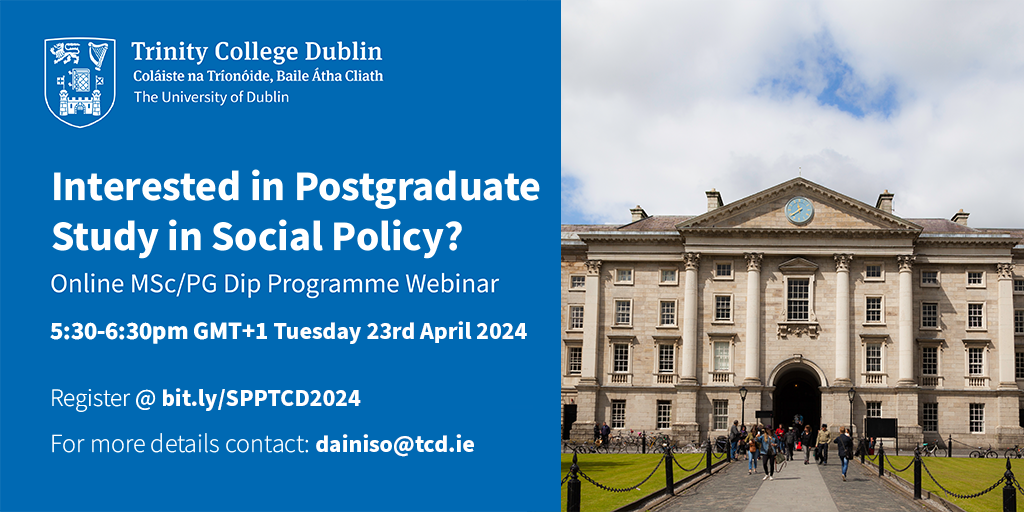
To register click here.
The ReproCit Project at the Abortion and Reproductive Justice Conference, Bangkok
The ReproCit Project presented at the “Abortion and Reproductive Justice Conference: The Unfinished Revolution IV”, hosted by Asian Safe Abortion Programme in Bangkok, Thailand at Mahidol University (15 February – 18 February 2024). The ReproCit Team consisting of Dr Catherine Conlon and Dr Kate Antosik-Parsons (TCD) and Dr Fiona Bloomer and Dr Emma Campbell (UU) all made valuable contributions to the conference.
On Thursday, 15 February, Kate Antosik-Parsons and Emma Campbell co-facilitated “Reproductive Citizenship: Arts and Abortion Utopia Workshop”. The all-island ReproCit project examined abortion art activism using reproductive citizenship. The aim of this creative two-hour workshop was to produce a toolkit on creative best practice and abortion. We convened global peers interested in abortion art activism and invited them to share developments in abortion art activism from their own contexts.
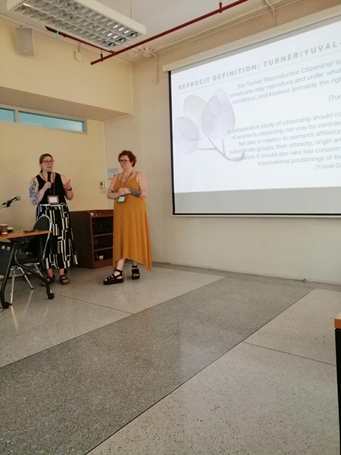
The workshop was a great success with many engaged peers who not only produced wonderful zines and creative interventions about abortion in their own contexts but also facilitated a sharing of information.
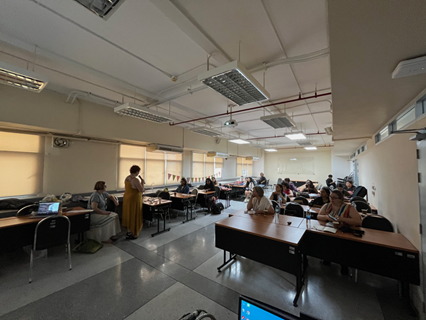
During a plenary session chaired by Anand Sinha and Rada Tzaneva and Facilitated by Fiona Bloomer, Catherine Conlon spoke on the plenary panel “Understanding Opposition and Safeguarding Rights”, alongside speakers Neil Datta, European Parliamentary Forum, Belgium and Ignatia Alfa Gloria, Youth Network Indonesia. Catherine gave insights into current abortion provision in the Republic of Ireland.
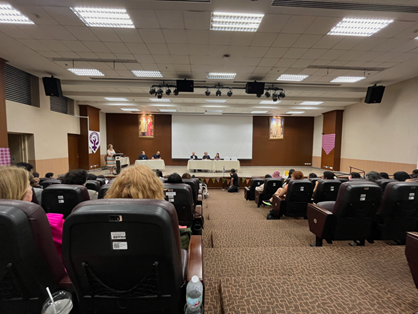
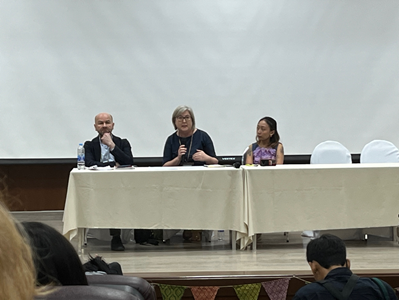
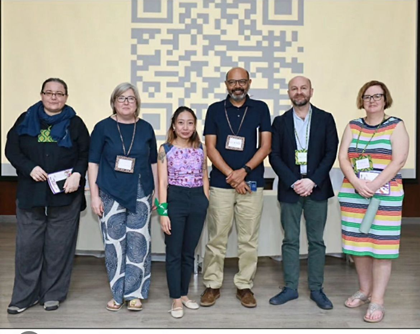
Also on 17 February, Fiona Bloomer spoke on the plenary session: “Academia, activism and everything in between: Bridging the gaps and joining the dots”, co-chaired by Prof. Kritaya Archavanitkul and Mitra Kadarsih, facilitated by Priskila Arulpragasam.
On 17 February, Kate Antosik-Parsons and Emma Campbell co-presented a paper: “Reconceptualising Reproductive Citizenship: Emerging Insights from a comparative study of abortion seekers form the island of Ireland following legalisation” on the Law and Policy panel alongside presenters from Japan, Democratic Republic of Congo and South Africa.

This presentation explored empirically articulations of reproductive citizenship through abortion seeker narratives in the wake of recent legalisation.
On the final day of the conference, Sunday 18 February, Emma Campbell gave insights on the plenary panel “Life: beginnings, endings and everything in between” co-chaired by Na Young and Suzanne Belton, facilitated by Suchitra Dalvie.
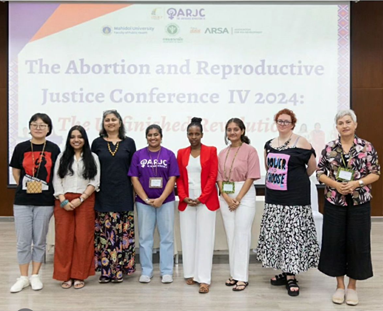
The Abortion and Reproductive Justice Conference enabled the ReproCit team to make important global connections between the project and abortion providers, advocates and scholars and we see our participation at the conference as further enriching our research.
Funding for attendance at this conference is gratefully acknowledged by Kate Antosik-Parsons from the Trinity College Dublin Research Fellows Award.
More information on the ReproCit Project and its activities is available here: https://reprocit.wordpress.com/
March 19, 2024
March Student Profile: Srimoyee Biswas - Structured PhD Programme & Government of Ireland Scholarship Recipient
Interview with a Scholar: Government of Ireland Scholarship Recipient, Srimoyee Biswas
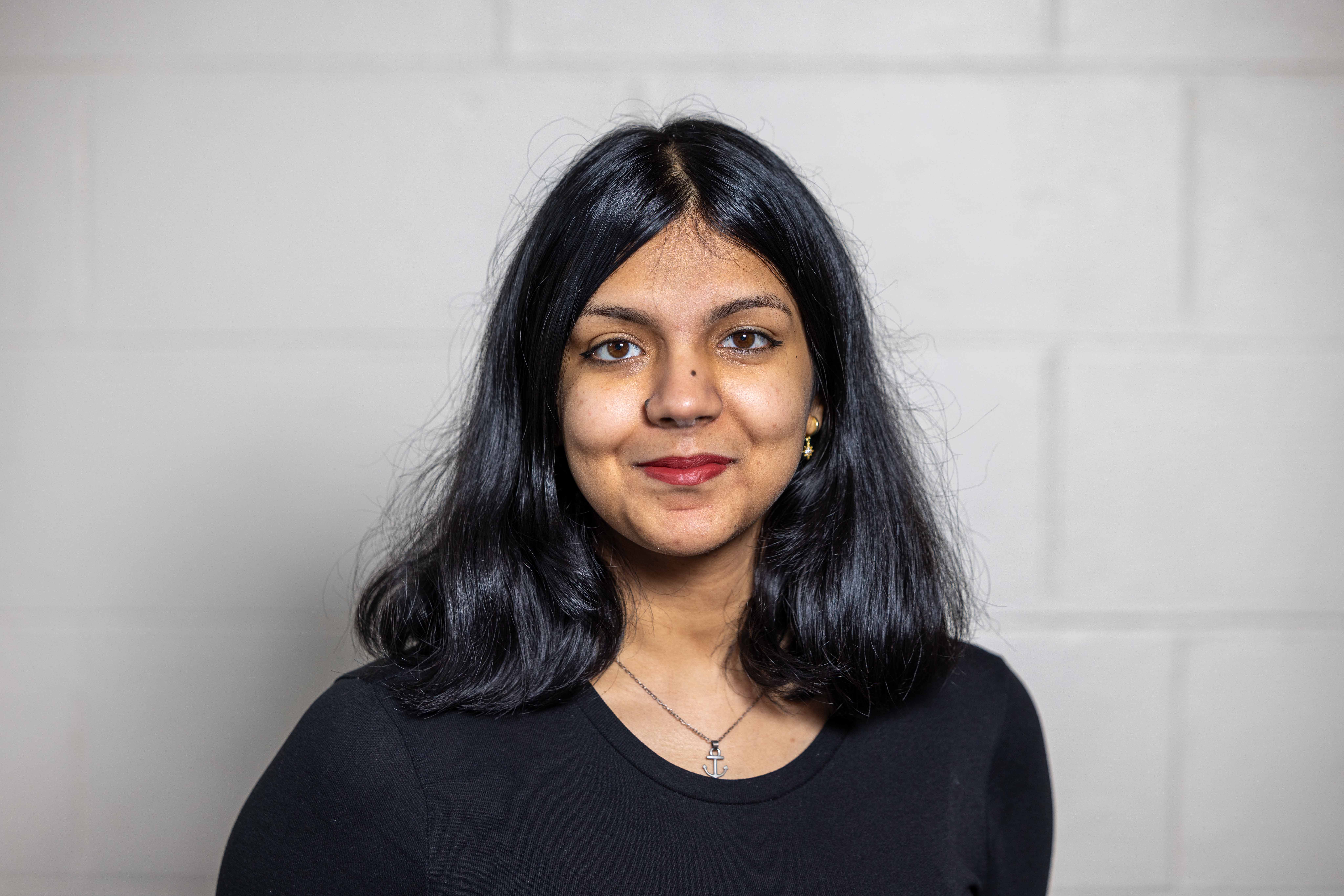 The School of Social Work and Social Policy is delighted to announce that our new PhD candidate, Srimoyee Biswas, was awarded the prestigious Government of Ireland International Education Scholarship (GOI-IES) to help fund her studies at Trinity. This award programme, which is open to Non-EU postgraduate students looking to study at an Irish institution, is highly competitive, with only 60 awards given per year to across all of Ireland’s universities. We are therefore very proud to have a GOI scholarship recipient among our new cohort of students! Below is an interview with Srimoyee, shedding light on her decision to come to Ireland, her journey to receiving this exceptional award and her research goals.
The School of Social Work and Social Policy is delighted to announce that our new PhD candidate, Srimoyee Biswas, was awarded the prestigious Government of Ireland International Education Scholarship (GOI-IES) to help fund her studies at Trinity. This award programme, which is open to Non-EU postgraduate students looking to study at an Irish institution, is highly competitive, with only 60 awards given per year to across all of Ireland’s universities. We are therefore very proud to have a GOI scholarship recipient among our new cohort of students! Below is an interview with Srimoyee, shedding light on her decision to come to Ireland, her journey to receiving this exceptional award and her research goals.
- Where are you from?
I am from India from the state of West Bengal. My education was in my home state till high school, and I went ahead to complete my undergraduate degree in Journalism from Bangalore and then pursue my postgraduate degree in Social Exclusion and Inclusive Policy from Jamia Millia Islamia, New Delhi.
- Tell us in a few sentences about your academic background and why you wanted to pursue a Ph.D.
My interests have always been in the arena of social sciences. After graduating from high school, I went ahead to complete my undergraduate degree in journalism and while it was a great journey, the state of the newsroom did not convince me to pursue it as a career or a wider interest. Instead, I found my calling in the more academic component which was first reflected in my undergraduate thesis. I worked on the idea of media framing in the context of the Rohingya crisis and I think this was the first time I was reading authors like Patricia Hill Collins, and it fascinated me how the gendered aspects of journalism emerged in studies and an inevitable interest started cropping up in policy. This solidified as I studied ‘social exclusion’ as a phenomenon in the context of policy for my postgraduate degree. My fieldwork in New Delhi, conducted during my stint with the New Delhi State Government, was pivotal in giving me that ‘extra push’ when it came to solidifying my resolve to pursue a Ph.D. as I visited local units of welfare delivery services (known as aanganwadis). I was simultaneously reading, understanding, and reflecting on ‘caste’ and ‘gendered identities’ and the lack of conversations/ appropriation of the same in academic spaces and everything tied together to give way to my research.
- Were you considering universities all over the world or were you just looking at universities in Ireland?
I had mainly aimed at the European universities owing to the flexibility it gave to early-career researchers to be able to dive headfirst into research. Personally, I aimed at a few universities in the UK and Trinity here in Ireland.
- Tell us in a few sentences about your research interests and the work you plan to do with your supervisor:
My research interests mainly lie in understanding the formation of policy, not necessarily at the bureaucratic level but how the everyday-ness of policy manifests and its interface with the different identities one harbours. I am particularly interested both through my work and generally in the field of education to focus on gender and ‘caste’ as two different identities that determine the welfare experience. The need to talk about ‘caste’ specifically stems from the South Asian scholarship being relegated to a place where only hyper-specialisation of caste occurs but my sincere attempt is to be able to keep talking about this in different well-established disciplines like social policy. My supervisors, both Dr Joe Whelan and Dr Catherine Conlon have worked on lived experiences and grounded constructivist theory in the context of feminist studies, respectively. Hence, the fact that they have taken me up on this opportunity just exemplifies the fact that what we will be doing is symbiotic in nature. I am learning and yet to learn so much about research methodologies and their pedagogies while they also consciously keep up with the understanding of this relatively new area of research themselves. Ultimately, I hope we will all be able to put together a study that will be innovative to understand how different groups based on their identities and lived experiences negotiate the welfare system focusing on India as a site of study.
- How did you find out about the Government of Ireland Scholarship?
The funding was listed as an ‘additional source of funding’ on the School’s webpage and by the time I was in conversation with my supervisors I flagged the need to be able to get funding to pursue my research; the idea was to cast the net as wide as possible. I later read through the website and familiarised myself with what the Higher Education Authority has to offer and the work that they have put in by working closely with the Government of Ireland to democratise education to international students and I thought of giving it a shot.
- Can you describe the application process?
The application process is entirely written, so there is no qualifying interview where say a candidate can demonstrate their interest. Hence, I felt the key was how well you can put together your ideas and thought processes into words; hence it really tests your writing capabilities. The process also requires you to have an offer from the university and the course you are applying to so it is extremely important to keep that handy. Additionally, it also requires you to have references from the individuals you have studied/ worked with. I would recommend planning this and having the conversation with the concerned individual as unlike most university/ scholarship portals it requires the applicant to upload the reference from their end instead of requesting the reference to upload it from their end onto the portal.
- How did you feel when you found out you had been awarded your scholarship?
Very relieved. I think getting a scholarship to fund my studies was extremely important to me. Education as a sector is yet to be democratised and unfortunately, it remains highly inaccessible to several students from the global south and more so the marginalised students of the global south. I still remember that I was working with United Nations Women and the news over e-mail reached me when I was in my office. Everyone in the government building where I was based in New Delhi made me feel very loved after I shared this, celebrating this victory, as one of their own! It was a great evening spent in the company of a few friends and I sincerely cherish that. However, it was also a moment of reflection on how privileged I was to even be able to have access to things like the internet, a good English education, and different social privileges which led me to the point if anything I should be thankful yet critical of my successes.
- How did your family and friends react to your news about becoming a scholarship recipient?
I was unfortunately not in the same city where my family was. I was in New Delhi while my family was back in Kolkata. They did get a phone call and they were as relieved as I was because they have quite closely seen me grapple with the uncertainty of securing funding and have always been quiet pillars of support. My friends who were in the city and otherwise were also very supportive, overjoyed, and very proud and I am thankful to them for never stopping to believe in me even at times when I found it difficult to believe in myself.
- What is your favourite part so far about being a PhD candidate at Trinity?
I think Trinity is a wonderful place to be in and apart from the campus being steeped in history, I feel generally a sense of belonging and association with the space simply because everyone is really on their unique trajectories and equally invested when it comes to others having their interests. While I am at a very nascent stage, I enjoy popping by for the mixers/ lunches with other PhD students and catching up with them. Initially one might think that a Ph.D. is an isolating journey, but I think the events organised, turning up for seminars, and attending conferences allow you to make friends and just generally find yourself in a collaborative space. I am also a Teaching Assistant and have taught undergraduate students for a term which was enriching and some of the discussions have also been very insightful. The ecosystem of learning and finding myself beyond the office desk has been interesting and one of the most enjoyable times so far.
- What are your ultimate career goals after finishing your PhD?
Ideally, I would love to take my learnings and get reabsorbed back into academia within or beyond Ireland. While I speak of this, I am very cognisant of the very real restraints within the realm and how ambitious it may sound, at this stage. However, I want to work towards facilitating the process of democratising the education system, working along the lines of identity and how they shape experiences and taking that into account building towards making the classroom spaces more inclusive. I would love to have the opportunity to work along these lines and build/strengthen the curriculum. My key insight from teaching (the little that I have) is that once a student can relate to the curriculum, it opens the possibility of making them more involved in the teaching and academic process by extension. That’s the intersection I would like to tap into and work on.
- What advice do you have for other international students looking to receive a scholarship?
Know that while it may seem intimidating after looking at the acceptance rates and the people who did make it, believe in your own unique experiences and what made you come to this point. I think when one introspects, we realise that we all have a story to tell. I think narrating that story is key. Reach out to people who have already made it into places you envision yourself and build a community, ask away and seek advice but know that someone else’s journey should never act as a template for yours. Lastly, once you get a scholarship make the conscious effort to educate and reflect on yourself, your privileges, and what led you to this point, and don’t just stop there. Start reaching out to people back home and talk to students with similar aspirations and try to find it in yourself to make time to further these opportunities, reach out to your peers, and ensure there are collaborative efforts with a shared vision that further this cause. Scholarships are a small bit but take that as an opportunity to reflect on the larger picture of life!
__
March 4, 2024
School celebrates #CareDay2024 hosting 'Embrace Our Stories' photography exhibition in partnership with Trinity Access Programme
The School of Social Work and Social Policy, in partnership with the Trinity Access Programme, were delighted to mark #CareDay2024 hosting the ‘Embrace Our Stories’ photography exhibition curated by Empowering People in Care. The exhibition showcased photographs taken by care-experienced children and young people and can be viewed virtually here: Embrace Our Stories Photography Exhibition - a virtual tour - YouTube
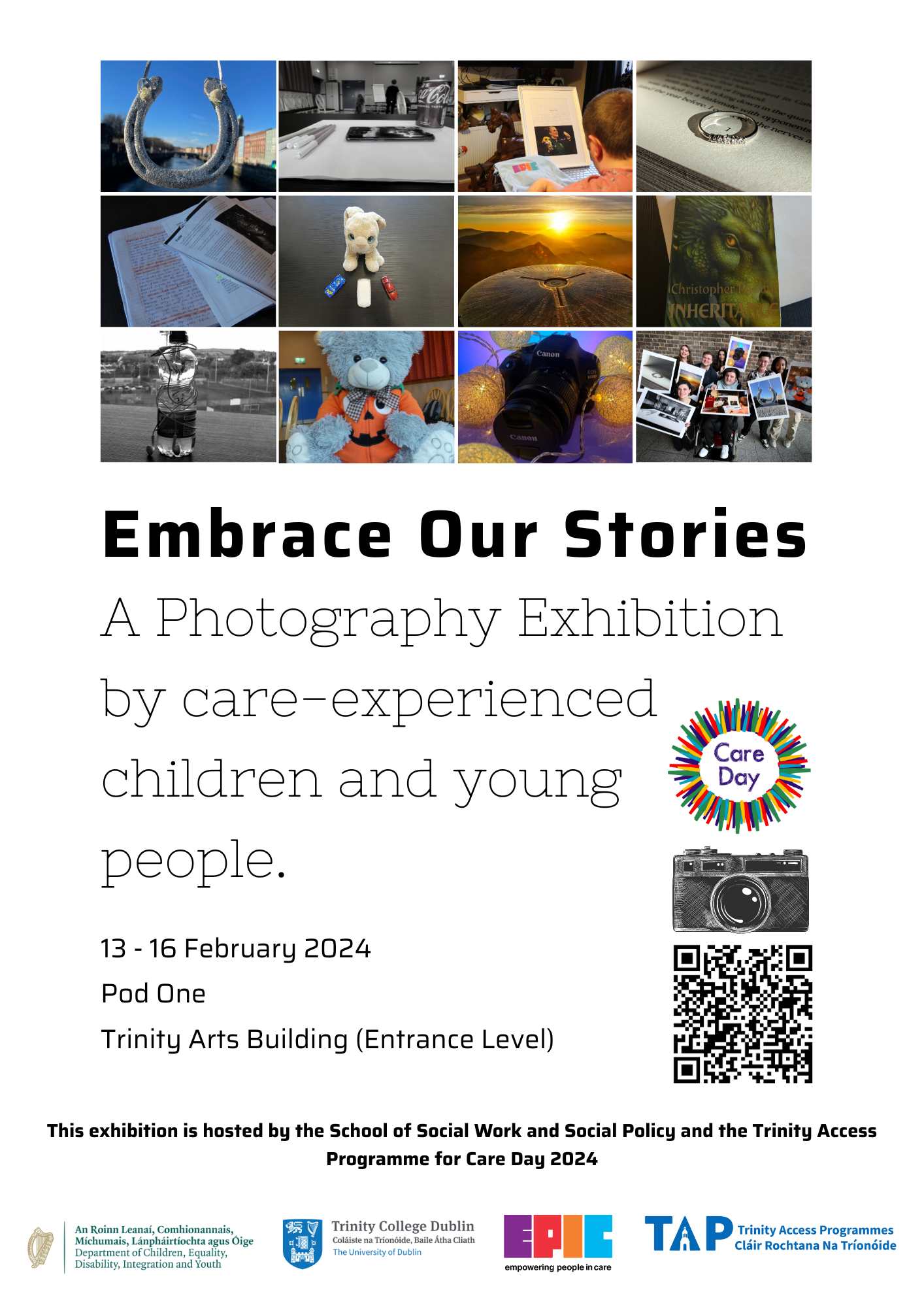

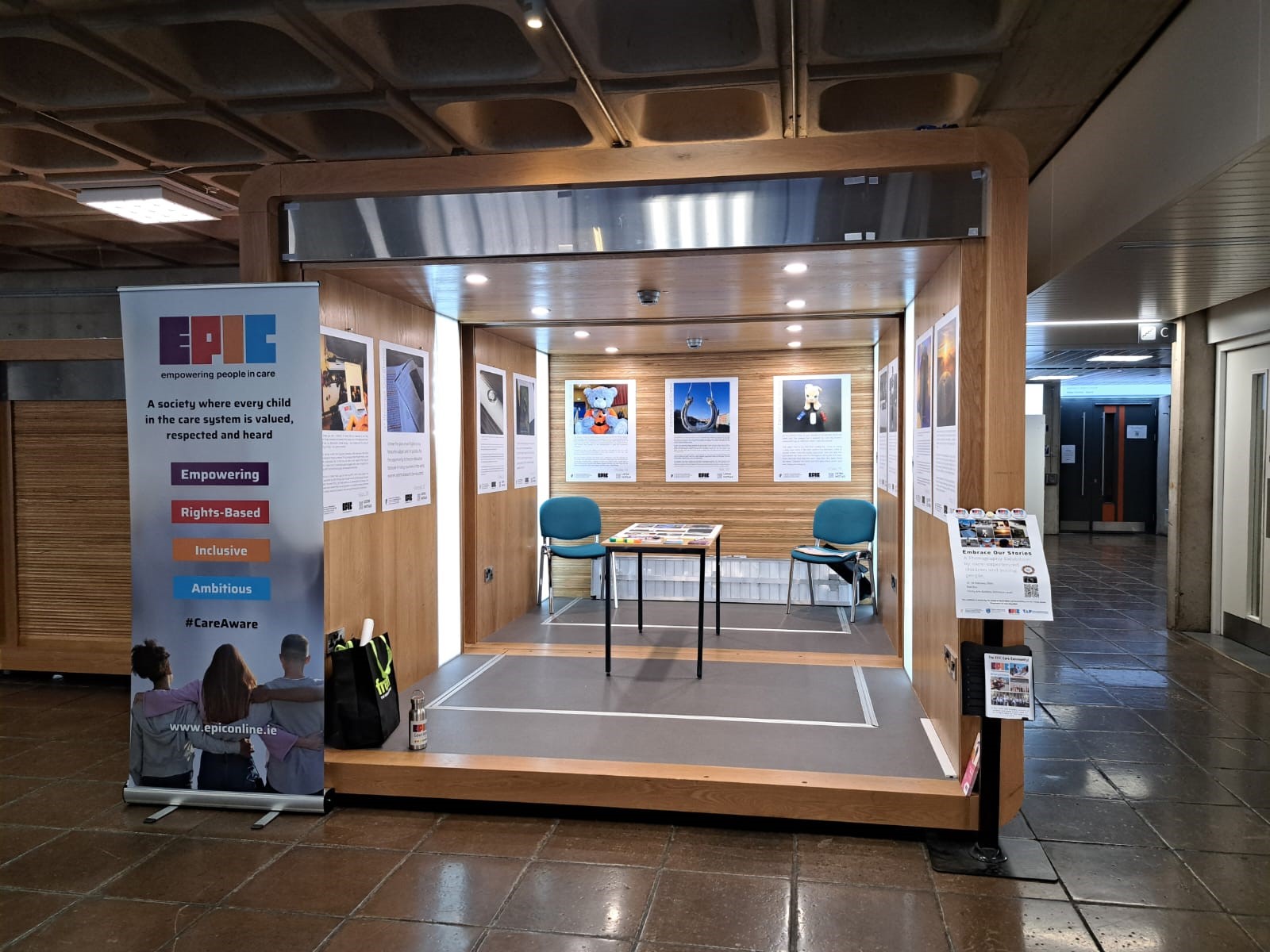

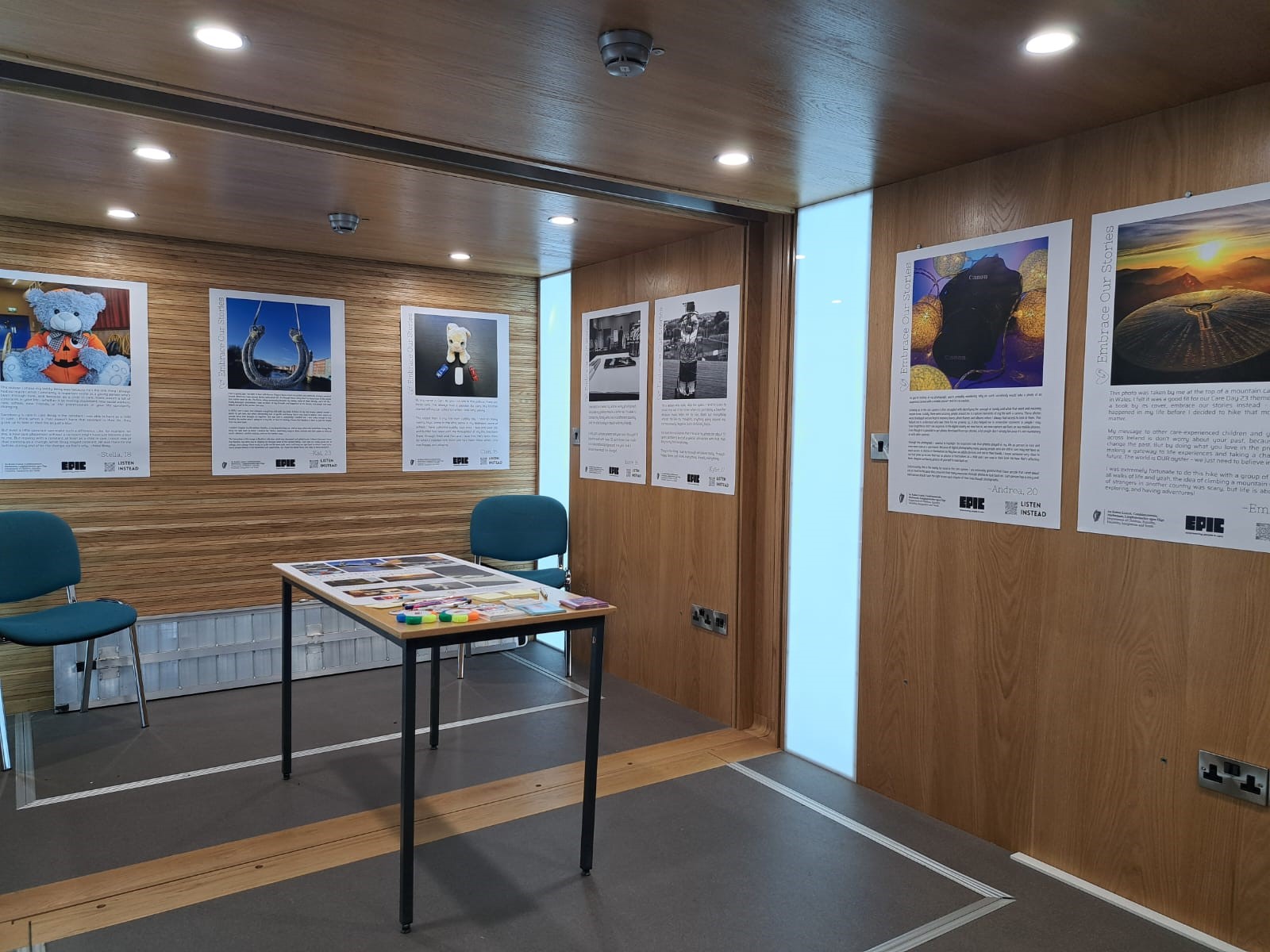
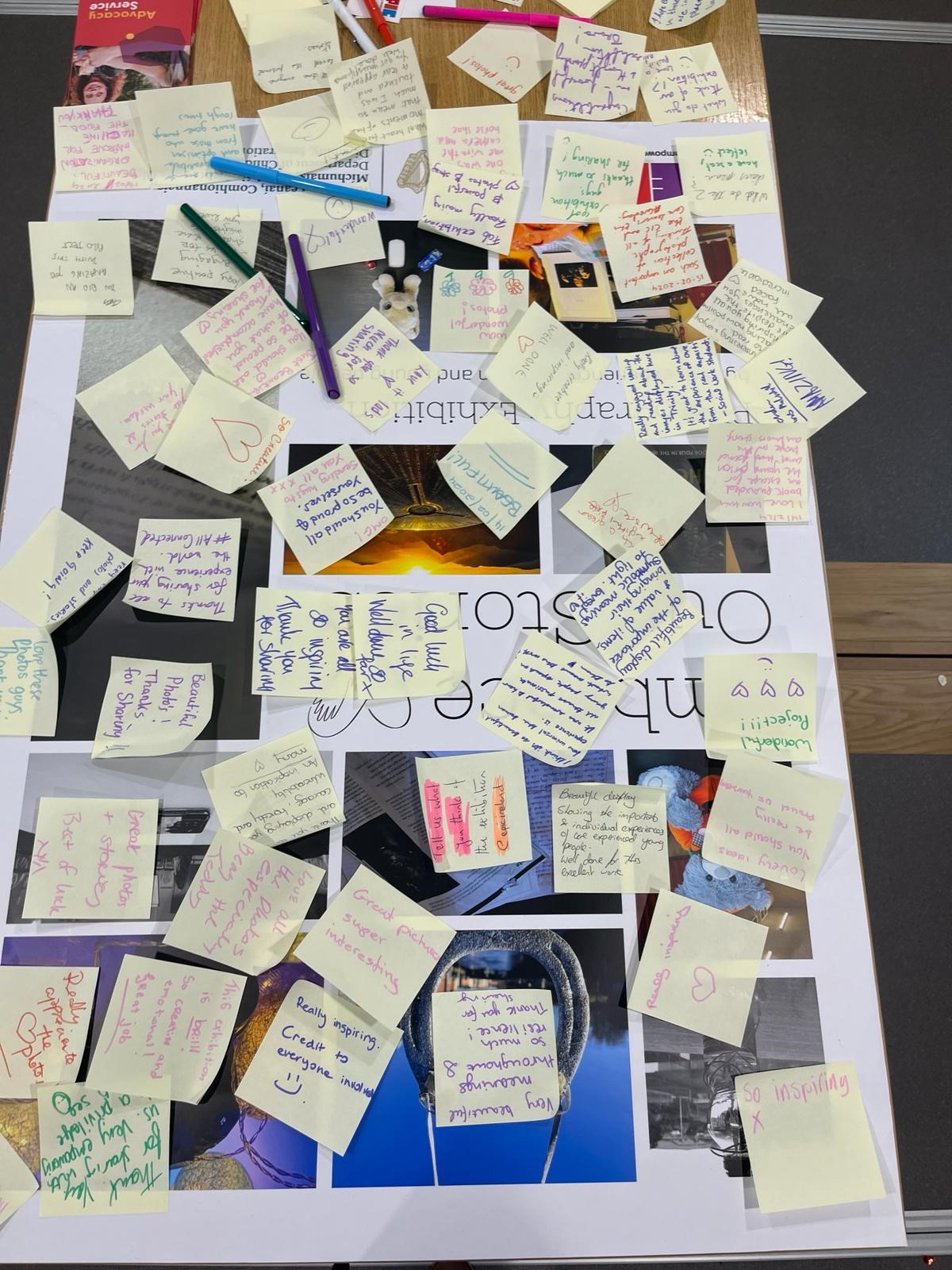
21st February, 2024
Care leavers ten years on — first phase of landmark study commences
Posted on: 15 February 2024
Ground-breaking research study to transform our understanding of how adults fare after leaving the state care system
Minister Roderic O’Gorman met with the research team leading a major new study exploring the experiences of young adults who have left the Irish care system.
The study, Care Leavers – Ten Years On, will be the first in Ireland to address the experiences of ‘graduates’ of the care system in adult life, in terms of education, family, work, accommodation, health and well-being.

The study is being led by a research team from Trinity College Dublin in partnership with University of Sussex. Phase one of the study is now underway and will involve work to secure ethical approval, a review of relevant international research findings, and extensive consultation with care leavers and those providing after care and support services to ensure the best possible study.
Funded by the Department of Children, Equality, Disability, Integration and Youth, the study is part of Care Experiences: Journeys through the Irish Care System, a new national research and data project examining the lives of children in care and adults who were in care as children.
This two-year study, which will be completed by end of September 2025, will investigate how young people who leave the care system fare as adults; what makes a difference in supporting care leavers, and what is important from their point of view.
Welcoming the commencement of the study, Minster for Children, Equality, Disability, Integration and Youth Roderic O’Gorman said: “I want to congratulate the team on their progress to date in preparing for this innovative study, and I would also urge care leavers to take part in the upcoming consultations on how best to design the study. This will help to ensure that it reflects the experiences of as many care leavers as possible.”
The research team for Care Leavers – Ten Years On is led by Professor Stephanie Holt and Professor Emeritus Robbie Gilligan from the School of Social Work and Social Policy, Trinity, in association with Professor Janet Boddy, School of Education and Social Work, University of Sussex.
Assistant Professors Eavan Brady and Joe Whelan (School of Social Work and Social Policy, Trinity) and Dr Sarah Parker (School of Medicine, Trinity) complete the team.
Commenting on the new study, Professor Holt said: “We are delighted to have such a strong inter-disciplinary and inter-institutional research team working on this innovative study. Our findings will provide the first clear evidence from Ireland on how people who left foster or residential care in the past ten years or so are doing in their late twenties."
Professor Robbie Gilligan, Trinity, added: “This evidence will be invaluable for Tusla – Child and Family Agency as it plans services for children in care, and also as they develop their after-care programmes alongside other relevant public bodies. Importantly, the study will also contribute to international knowledge in this key area.”
Care leavers / care experienced adults who wish to take part in the upcoming consultation process for the design of the study should emailcareleaversstudy@tcd.ie to find out more. Alternatively, they are also very welcome to email their suggestions for any questions or topics to be covered in study interviews.
19th February, 2024
February Student Profile: Jianing Zhu - Structured PhD Programme & China Scholarship Council Recipient
Interview with a Scholar: China Scholarship Council Recipient, Jianing Zhu.
 In 2023 the School of Social Work and Social Policy was delighted to hear we would be hosting a China Scholarship Council award recipient and PhD candidate. Ms. Jianing Zhu joined the school in September 2023 becoming one a few fully funded CSC students at Trinity College Dublin. We were fortunate enough to catch up with Jianing for an interview discussing her award, how she ended up in Ireland and her research interests in the school:
In 2023 the School of Social Work and Social Policy was delighted to hear we would be hosting a China Scholarship Council award recipient and PhD candidate. Ms. Jianing Zhu joined the school in September 2023 becoming one a few fully funded CSC students at Trinity College Dublin. We were fortunate enough to catch up with Jianing for an interview discussing her award, how she ended up in Ireland and her research interests in the school:
- Where are you from?
I come from Jinhua, Zhejiang Province, CHINA.
- Tell us in a few sentences about your academic background and why you wanted to pursue a PhD:
I obtained a bachelor’s degree in Urban Management at Ningbo University of Technology. In addition, I obtained a Master’s degree in Social Policy at The Chinese University of Hong Kong this year.
I’ve enjoyed my academic work so far, but I feel like I don’t have sufficient time to research deeply, so to do a PhD is an appropriate option. The PhD journey, will take me to the edge of human knowledge, of course, in my research field. I am interested in social work and social policy, and I possess the passion to find out more create a better human society through my own specialty, so that I can make some contribution to this world, although its values may appear in many years later. So, I think that is meaningful and interesting to explore the path I like, especially a path that relates closely to the society. It is such a positive and inspiring thing. Of course, there are any other reasons like, gaining a doctorate degree enables me to gain a sense of achievement. However, I believe that my passion and my curiosity is the most crucial reason to make the decision to pursue a PhD.
- Were you considering universities all over the world or were you just looking at universities in Ireland?
To be honest, TCD is the only university I considered and applied. Actually, from my perspective, TCD gives me a strong sense of belonging. People here, including my supervisors and executive Officer I got access to are very friendly, patient, inclusive and passionate. I feel warm, supportive and delighted when I keep in touch with them.
Furthermore, Ireland is an ideal place for social research for its unique social welfare system and abundant academic resources, and this structured PhD programme attracts me because of its rigorous research standards and innovative discoveries. I am eager to explore more about the essence, roles and experiences of social policy and social work through gaining advanced knowledge from PhD courses, seminars, workshops and fieldwork in such an inclusive and diverse academic environment. I believe the future academic training here will definitely maximise my potential and lead me to further opportunities.
- Tell us in a few sentences about your research interests and the work you plan to do with your supervisor:
I have keen interests in ageing and care, social policy, social welfare and qualitative research methods. For my PhD thesis, I plan to investigate and understand the experiences of senior volunteers participating in time banks in Shanghai, with a focus on the motivations, challenges, personal perceptions and social interactions associated with their engagement.
Me and my supervisors made a detailed plan for my 4-year PhD studies that almost covered everything, including thesis drafting, publication, supervision, and programme attendance.
- How did you find out about the China Scholarship Council Award?
It is one of the most renowned scholarships between Chinese PhD Scholarships applicants. I heard about it several years ago, it not only provides scholarships to abroad PhD students, but also to interns at international organisations.
- Can you describe the application process?
I completed my online application in January 2023. Thanks a lot to Michelle! She introduced me to my supervisors Dr Catherine Elliott O’Dare and Dr Catherine Conlon. Then we had an informal meeting. Afterwards, I devoted myself into the two-rounds CSC Award preparation and I received the award in June 2023.
- How did you feel when you found out you had been awarded your scholarship?
No pain, no gain! I’m so proud of myself. I'm glad that all my efforts paid off. I’m also grateful to all my supervisors and friends who helped me to apply for this PhD scholarship. Many thanks to my country for providing me with living expenses and Trinity for exempting my tuition fees!
- How did your family and friends react to your news about becoming a scholarship recipient?
My family and friends are very proud of me, and I received their warm blessings and encouragement. This scholarship really saved me and allows me to focus on my interested research rather than worrying about living costs.
- What is your favourite part so far about being a PhD candidate at Trinity?
My office room in Fosters Place! I love my cozy and comfortable office room so much! It provides me with a private space for my research and living, just like my second home. I come to my office almost every weekday.
- What are your ultimate career goals after finishing your PhD?
As for my career goal, after graduation, I plan to pursue research-related positions in academia. This path might include receiving post-doctoral training to further refine my independent research experience and skills, or becoming a lecturer to impart knowledge to the younger generation and kindle their interests in the social work and social policy field. During my lifetime, I will continuously reflect on the opportunities and challenges of social work in solving social problems and meeting needs under changing social conditions, with emphasis on the plight of vulnerable groups in society.
- What advice do you have for other international students looking to receive a scholarship?
Securing a scholarship as an international student can be competitive, but with careful planning and strategic efforts, you can increase your chances of success. First of all, I would say that identifying scholarships that align with your field of study, interests, and background is very important, just look extensively for local and international scholarship opportunities. Secondly, start your preparation as early as possible. You need to make a detailed plan for your PhD and scholarship application. Most scholarship applications have early deadlines. If you miss the scholarship deadline, this means that you have to wait until next year. Thirdly, remember to maintain a strong academic record and strive for excellence in your studies. In addition, remember to craft a research proposal and an impressive personal statement, which can demonstrate your research potential, sincerity, and uniqueness. Finally, you can connect with current scholarship recipients, alumni, and professionals in your field and seek advice from them. Anyway, persistence is the key. Good luck to you all!
More information on the China Scholarship Council (CSC) – Trinity College Dublin Joint Scholarship Programme can be found on the university’s study website. Trinity is now inviting applications for the 2024 CSC-Trinity College Dublin Joint Scholarship Programme. The deadline for applications is 23 February. If you are a prospective PhD student, we encourage you to have a look at our Structured PhD course page!
6th February, 2024

